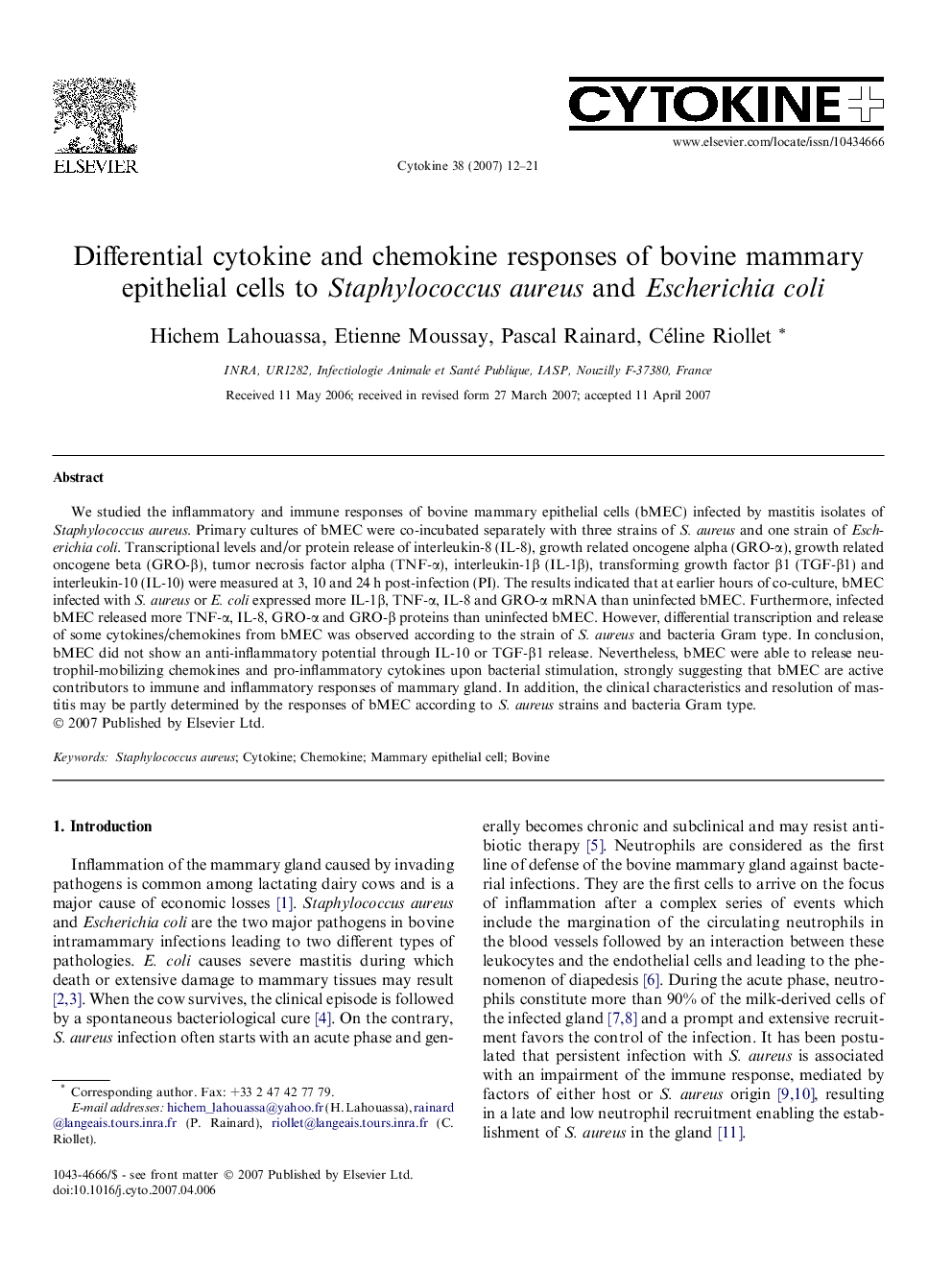| Article ID | Journal | Published Year | Pages | File Type |
|---|---|---|---|---|
| 2795837 | Cytokine | 2007 | 10 Pages |
We studied the inflammatory and immune responses of bovine mammary epithelial cells (bMEC) infected by mastitis isolates of Staphylococcus aureus. Primary cultures of bMEC were co-incubated separately with three strains of S. aureus and one strain of Escherichia coli. Transcriptional levels and/or protein release of interleukin-8 (IL-8), growth related oncogene alpha (GRO-α), growth related oncogene beta (GRO-β), tumor necrosis factor alpha (TNF-α), interleukin-1β (IL-1β), transforming growth factor β1 (TGF-β1) and interleukin-10 (IL-10) were measured at 3, 10 and 24 h post-infection (PI). The results indicated that at earlier hours of co-culture, bMEC infected with S. aureus or E. coli expressed more IL-1β, TNF-α, IL-8 and GRO-α mRNA than uninfected bMEC. Furthermore, infected bMEC released more TNF-α, IL-8, GRO-α and GRO-β proteins than uninfected bMEC. However, differential transcription and release of some cytokines/chemokines from bMEC was observed according to the strain of S. aureus and bacteria Gram type. In conclusion, bMEC did not show an anti-inflammatory potential through IL-10 or TGF-β1 release. Nevertheless, bMEC were able to release neutrophil-mobilizing chemokines and pro-inflammatory cytokines upon bacterial stimulation, strongly suggesting that bMEC are active contributors to immune and inflammatory responses of mammary gland. In addition, the clinical characteristics and resolution of mastitis may be partly determined by the responses of bMEC according to S. aureus strains and bacteria Gram type.
